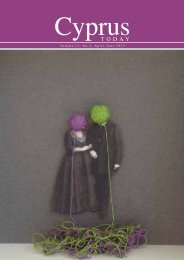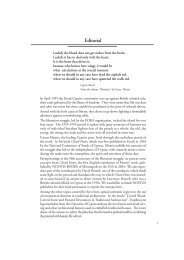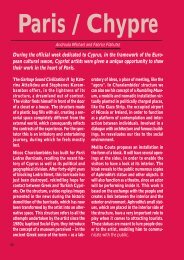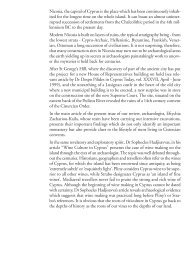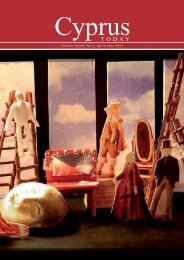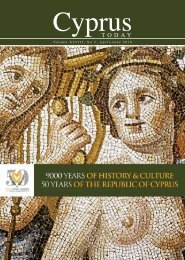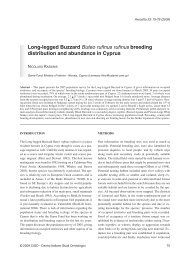Editorial
Editorial
Editorial
You also want an ePaper? Increase the reach of your titles
YUMPU automatically turns print PDFs into web optimized ePapers that Google loves.
If an ancient Greek were to hear today’s music,<br />
he would certainly be impressed by the polyfonia,<br />
impact and instrumentational strength,<br />
because those were not characteristic of ancient<br />
music.<br />
On the other hand he could consider our melodies<br />
to be monotonous, because only two modes are<br />
used in our days, (Major and Minor scales),<br />
whilst in ancient Greek music there existed seven<br />
different ways, each of which had a different<br />
character (mixolidios, lidios, frygios, dorios etc).<br />
Modes were of special importance to the ancient<br />
Greeks and this can be deduced from the fact<br />
that Plato dealt with these, as he considered<br />
some of them suitable for his Politia and others<br />
not. These modes were bequeathed to Byzantine<br />
music as the Eight Sounds, while they were<br />
being used by the Western Church too. In Eastern<br />
music the modes are known as makams. In contemporary<br />
music modes reappeared in Jazz with<br />
the same term modes with ancient Greek names<br />
About Ancient Greek Music<br />
Michalis Georgiou<br />
(left – right) The Greek Ambassador, Mr Dimitris<br />
Rallis, his wife and Michalis Georgiou.<br />
(mixolydian, dorian, ionian, aiolian, locrian,<br />
etc.)<br />
An ancient Greek would also find contemporary<br />
music poor in musical intervals, since only<br />
the rough intervals of tones and semi-tones<br />
are used in contrast to ancient music which used<br />
a variety of musical intervals. Apart from the<br />
Cleoriki kithara (cradle<br />
kithara), 5th century BC.<br />
Greek salpinx, trumpet, kochlos, keras. Seven-stringed lyra, 5th century BC. Oxival, clay pots with wooden bases.<br />
85




